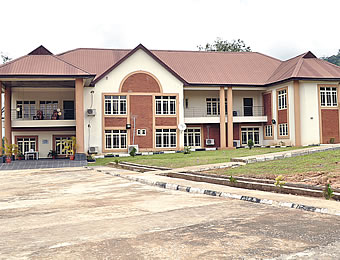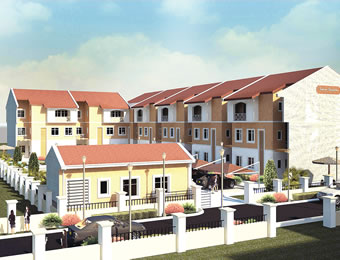To be known as ‘the right to repair scheme’, the initiative if receives official approval and stakeholders consents, is capable of removing misunderstanding between landlords and tenants over repairs that emanate from residential accommodations.
This issue affects those who are government’s tenants in various housing estates, including those who rent from private landlords, as well as from housing associations, councils or other registered housing providers, such as cooperative societies.
Speaking exclusively to the Nigerian Tribune on the issue, Mr Timothy Bamidele, an executive member, Real Estate Agents Association of Nigeria (REAAN), Ikorodu Chapter, Lagos State, was of the view that in the case of governments’ owned estates, the onus lies on government to take certain responsibility in the repair and maintenance of certain aspects of such estates.
“As a tenant, one have the right for an accommodation to be kept in a reasonable state of repair. Your tenancy agreement may give more details on this. Some repairs are the landlord’s responsibility regardless of whether they are in the tenancy agreement.
“The structure and exterior of the property are the exclusive responsibility of landlords, be it government, developers, or cooperative property, while things like walls, floors and window frames, as well as the drains, gutters and external pipes are the responsibility of tenants.
Other areas that Landlords have no responsibility include water and gas pipes in the homes and electrical wiring like taps and sockets, among others.
Another stakeholder, Mr. Benji Nzeakor, another estate agent, said ‘issue of who is responsible to do what’ has been a contentious one between landlords and tenants, especially, in high density areas.
“We, estate agents have a lot of story to tell, that may not be known to the public. For example, why is it that some tenants would refuse to pay rent at the expiration of their down payment?
“The answer is simple. How would I effect repair in a house where a landlord is collecting N500,000 per annum?”
Narrating an example of what occurred between tenants and a landlord at Palgroove Estate last week, where soak away was leaking and landlord, because he’s not living in the house refuse to effect the repair and tenants have agreed to deduct money spent for the repair from their annual payment.
Again, Nzeakor noted that house may require huge repair, for example, in the event of fire incidents, building dilapidation owing to old age, or as a result of other factors. “In this case one may ask whose responsibility is it to do the repairs, tenants or landlord?
“After you report a repair problem, your landlord should provide information on how they will deal with it and how long it should take. Your tenancy agreement or handbook may provide details of how long a particular type of repair usually takes.
“It is a good idea to collate evidence to back up your case, such as any photos and correspondence between you and your landlord, including your agent. Keep your tenancy agreement and any potential supporting documents – for example, if you have a letter from a health professional which relates to how the problem is affecting your health”, counseled, a senior official with the Lagos State Ministry for Housing, who spoke on the condition of anonymity.
“For instance, we are looking at the possibility of say, in government or privately built estates, that tenants can undertake some small repairs that may be covered by ‘the right to repair scheme’.
“The purpose of the proposed scheme is to ensure that urgent or emergency repairs which would cost under N25,000 can be completed urgently, but if it’s more than that, one could be entitled to compensation”.
For tenants renting privately, there suppose to be a good guide to landlords’ legal obligations, including repairs.
There have been some cases of tenants being evicted after making complaints but there is a proposal coming up to take care of the situation.
Nigerian Tribune learnt that tenants would have some legal protection against revenge eviction emanating from complain about repairs.
“What if my landlord doesn’t listen to me? If you have reported repair problems to your landlord and they aren’t responding, there are a number of steps you can take.
“First of all, ensure you have raised the case formally in writing. If you are a resident in a housing association or a housing cooperative, there should be a formal complaints procedure that should detail how to complain, but in general, the letter should include details of the problem and what you would like the landlord to do to solve it.
“Include details about your rights, what you feel the landlord should have done, and any evidence, such as photographs and previous correspondence, to back your points up.
“If concerns are still not dealt with, there are a number of options you can take. You may want to contact your officials of the Ministry for housing, or officials of the registered estate agents in one local areas for help. And after raising a complaint, the case would be investigated and treated as such”, said Timothy Bamidele.
WATCH TOP VIDEOS FROM NIGERIAN TRIBUNE TV
- Let’s Talk About SELF-AWARENESS
- Is Your Confidence Mistaken for Pride? Let’s talk about it
- Is Etiquette About Perfection…Or Just Not Being Rude?
- Top Psychologist Reveal 3 Signs You’re Struggling With Imposter Syndrome
- Do You Pick Up Work-Related Calls at Midnight or Never? Let’s Talk About Boundaries








